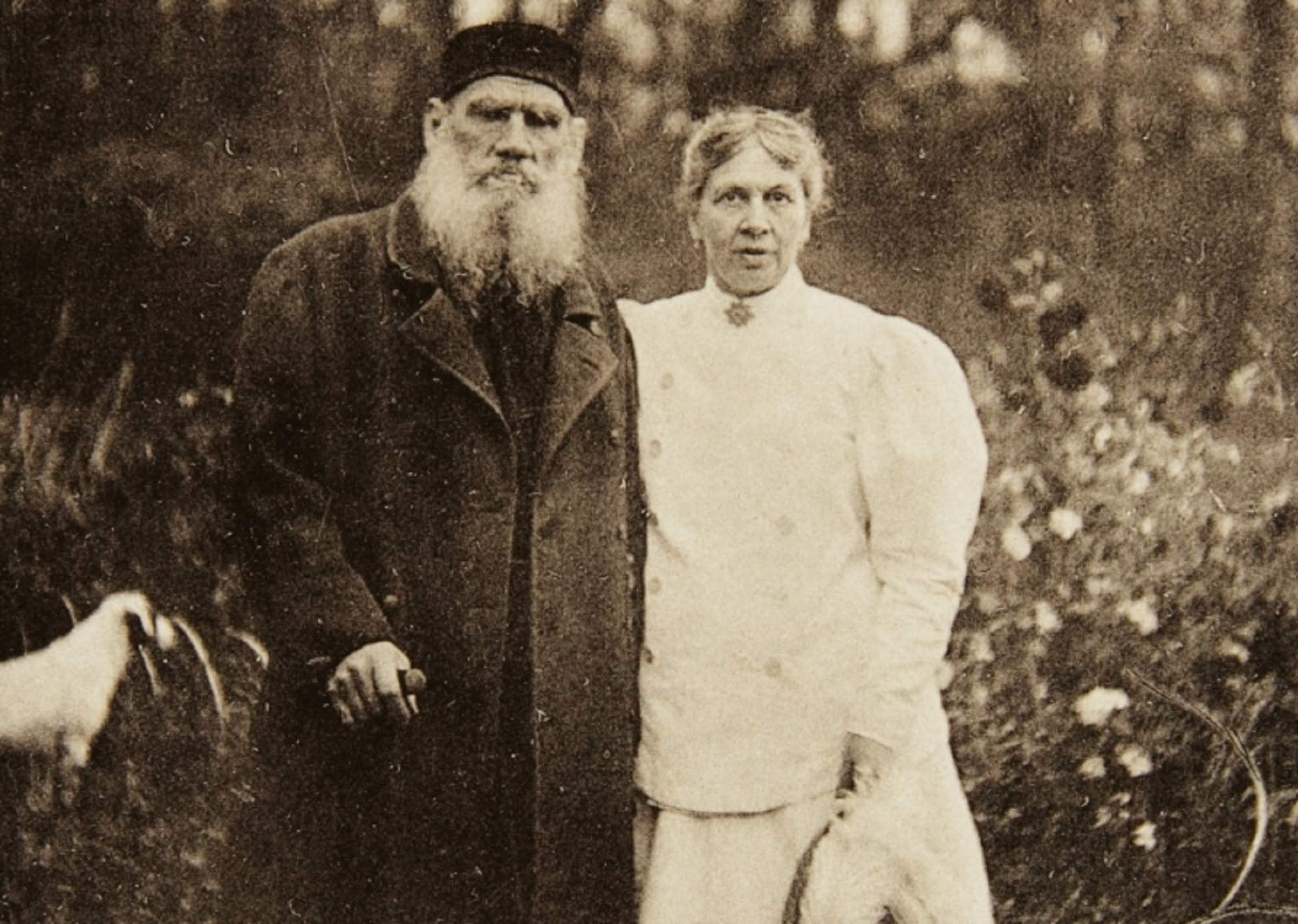Leo Tolstoy Archive
Written: 1887
Source: "A Russian Proprietor and Other Stories," by Leo Tolstoy, translated by Nathan Haskell Dole, 1887, published by Thomas Y. Crowell & Co., New York, 13 Astor Place.
Transcription/Markup: Andy Carloff
Online Source: RevoltLib.com; 2021

As soon as he got into the house, the old man bowed once more; then using his coat-tail to dust the bench in the front of the room, he smiled, and said,—
"What do you want of us, your excellency?"
The hut was bright and roomy, with a chimney; and it had a loft and berths. The fresh aspen-wood beams, between which could be seen the moss, scarcely faded, were as yet not turned dark. The new benches and the loft were not polished smooth, and the floor was not worn. One young peasant woman, rather lean, with a serious oval face, was sitting on a berth, and using her foot to rock a hanging cradle that was suspended from the ceiling by a long hook. This was Ilya's wife.
In the cradle lay at full length a suckling child, scarcely breathing, and with closed eyes.
Another young woman, robust and rosy-cheeked, with her sleeves rolled up above her elbows, showing strong arms and hands red even higher than her wrists, was standing in front of the oven, and mincing onions in a wooden dish. This was Karp's wife.
A pock-marked woman, showing signs of pregnancy, which she tried to conceal, was standing near the oven. The room was hot, not only from the summer sun, but from the heat of the oven; and there was a strong smell of baking bread.
Two flaxen-headed little boys and a girl gazed down[72] from the loft upon the prince, with faces full of curiosity. They had come in, expecting something to eat.
Nekhliudof was delighted to see this happy household; and at the same time he felt a sense of constraint in presence of these peasants, men and women, all looking at him. He flushed a little as he sat down on the bench.
"Give me a crust of hot bread: I am fond of it," said he, and the flush deepened.
Karp's wife cut off a huge slice of bread, and handed it on a plate to the prince. Nekhliudof said nothing, not knowing what to say. The women also were silent, the old man smiled benevolently.
"Well, now why am I so awkward? as though I were to blame for something," thought Nekhliudof. "Why shouldn't I make my proposition about the farm? What stupidity!" Still he remained silent.
"Well, father Mitri Mikolayévitch, what are you going to say about my boys' proposal?" asked the old man.
"I should advise you absolutely not to send them away, but to have them stay at home, and work," said Nekhliudof, suddenly collecting his wits. "You know what I have proposed to you. Go in with me, and buy some of the crown woods and some more land"—
"But how are we going to get money to buy it, your excellency?" he asked, interrupting the prince.
"Why, it isn't very much wood, only two hundred rubles' worth," replied Nekhliudof.
The old man gave an indignant laugh.
"Very good, if that's all. Why not buy it?" said he.[73]
"Haven't you money enough?" asked the prince reproachfully.
"Okh! Sir, your excellency!" replied the old man, with grief expressed in his tone, looking apprehensively toward the door. "Only enough to feed my family, not enough to buy woodland."
"But you know you have money,—what do you do with it?" insisted Nekhliudof.
The old man suddenly fell into a terrible state of excitement: his eyes flashed, his shoulders began to twitch.
"Wicked men may say all sorts of things about me," he muttered in a trembling voice. "But, so may God be my witness!" he said, growing more and more animated, and turning his eyes toward the icon, "may my eyes crack, may I perish with all my family, if I have any thing more than the fifteen silver rubles which Ilyushka brought home; and we have to pay the poll-tax, you yourself know that. And we built the hut"—
"Well, well, all right," said the prince, rising from the bench. "Good-by, friends."[46]